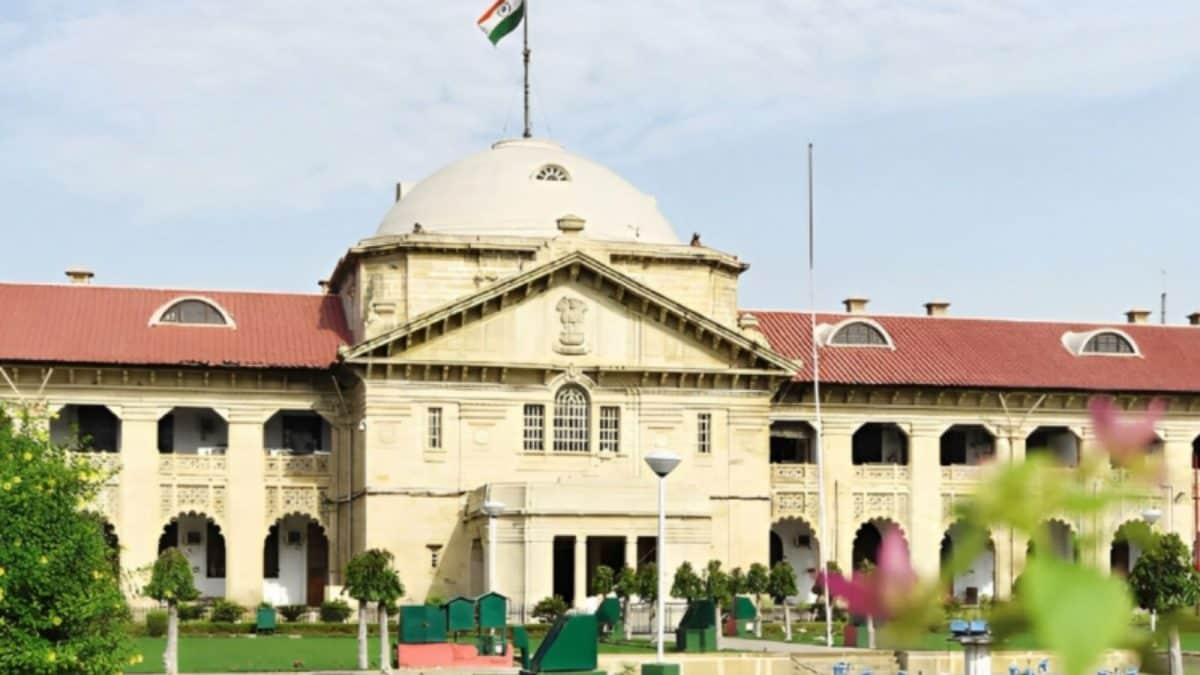Last Updated:
The government issued sweeping directions to drop caste identifiers in compliance with an Allahabad HC judgment that termed caste glorification violative of constitutional morality

The Allahabad High Court has held that recording caste in criminal cases reinforces prejudice and undermines the principle of equality enshrined in the Constitution.
Can removing caste references from FIRs, arrest memos, and police noticeboards help eliminate caste consciousness in society or will it remain a cosmetic reform? The question looms large after the Uttar Pradesh government issued sweeping directions to drop caste identifiers from official documents, public spaces, and police vehicles, in compliance with a recent Allahabad High Court judgment that termed caste glorification “anti-national” and violative of constitutional morality.
UP’s political experts call the move “progressive but partial”, warning that administrative reform alone cannot erase deeply embedded social prejudice.
Recommended Stories
In a major move aimed at curbing identity profiling, chief secretary Deepak Kumar on Saturday circulated a 10-point order to all police and administrative authorities, instructing them to ensure that caste is no longer mentioned in FIRs, arrest or seizure memos, or other formats of the police department. Instead, parent names will be recorded for identification.
The order, issued on September 21, was the fallout of a high court directive that held that recording caste in criminal cases reinforces prejudice and undermines the principle of equality enshrined in the Constitution. “The caste of an individual has no bearing on the nature of the offence or the quality of investigation. Recording it amounts to profiling rather than fact-finding,” the court observed, adding that caste glorification weakens national unity.
The caste column in the Crime and Criminal Tracking Network & Systems (CCTNS) will be removed, with the state also writing to the National Crime Records Bureau (NCRB) to carry out the technical change nationwide. Police formats will now record the mother’s name alongside the father’s or husband’s name, marking a gender-inclusive shift in identification practices.
Until these changes are fully implemented, data-entry staff have been instructed to treat the caste field as non-mandatory and leave it blank. At the ground level, all police stations must immediately erase caste-related columns from noticeboards and ensure that arrest reports, seizure memos, and personal search records no longer carry caste details.
The order also mandates that stickers, slogans, and names indicating caste on both private and official vehicles be removed, warning that violators will face penal action under the Motor Vehicles Act. Likewise, signboards that proclaim localities, colonies, or towns as belonging to a particular caste or “jagir” must be dismantled without delay.
The government has gone a step further by prohibiting caste-based rallies and public gatherings, citing the threat they pose to public order and national unity. Social media monitoring will be tightened, with authorities directed to act against caste-glorifying or caste-hate content under the IT Rules, 2021. The order, however, makes a crucial exception for cases filed under the Scheduled Castes and Scheduled Tribes (Prevention of Atrocities) Act, where caste remains a legal necessity.
Kumar has also tasked the Additional Chief Secretary (Home) and the Director General of Police with preparing new Standard Operating Procedures (SOPs) and amending police manuals to institutionalise these changes across the state.
Political analyst Shashikant Pandey, head of the department of political science at Dr Bhimrao Ambedkar University, Lucknow, sees the move as a “progressive step” that addresses a structural flaw in the policing system.
“Recording caste in FIRs often leads to stereotyping, especially of marginalised groups, and colours investigation. Removing it will force law enforcement to focus on evidence rather than identity. However, caste is not merely an administrative entry; it is a social reality deeply rooted in behaviour, marriage patterns, and power relations. Unless there is a broader social reform campaign, this order will remain an important but partial measure,” Pandey told News18.
He added that including the mother’s name in police documents is a subtle but powerful shift. “It is a move away from purely patrilineal identification and aligns with the principle of gender equality,” he said.
While the ruling BJP has hailed the move as a step toward social harmony, the Opposition has questioned whether administrative orders can dismantle centuries-old social hierarchies.
Samajwadi Party president Akhilesh Yadav, posting on X, asked: “What will be done to eliminate caste bias entrenched for 5,000 years in the mind? How will discrimination through clothing, symbols, or the mentality of asking one’s caste before their name be addressed? What measures will end practices like forcing someone to wash their house because of caste, or conspiracies that defame people with false, caste-driven allegations?”
September 23, 2025, 15:19 IST
Loading comments…
Read More



